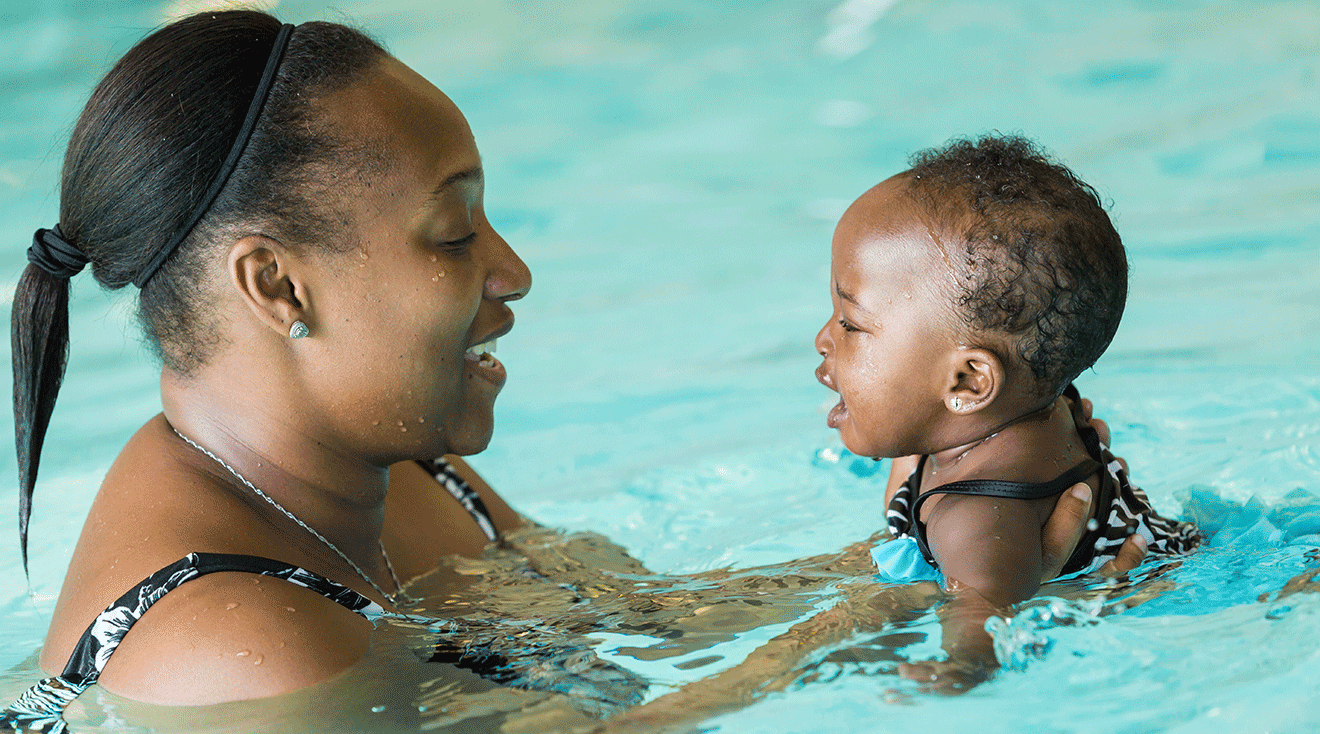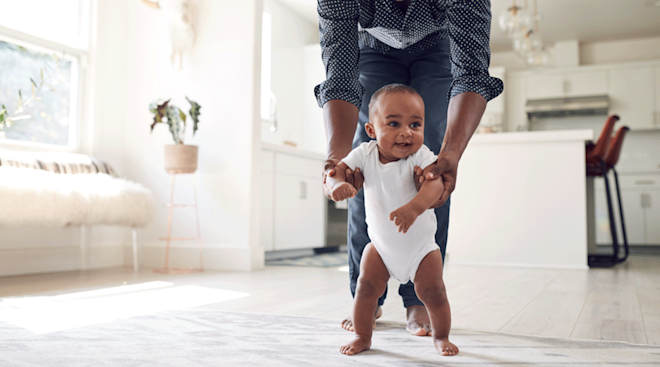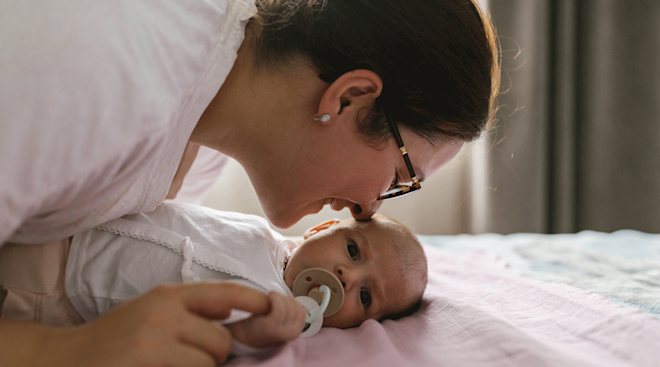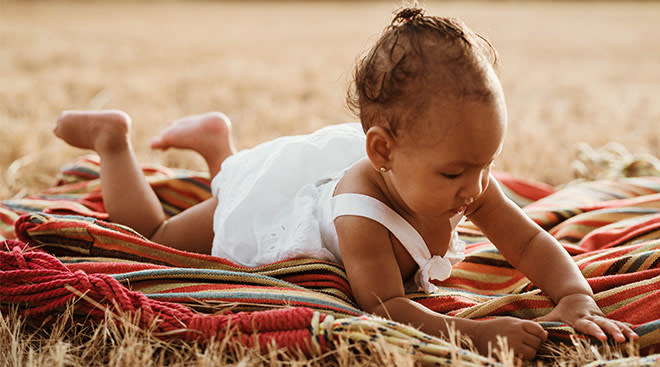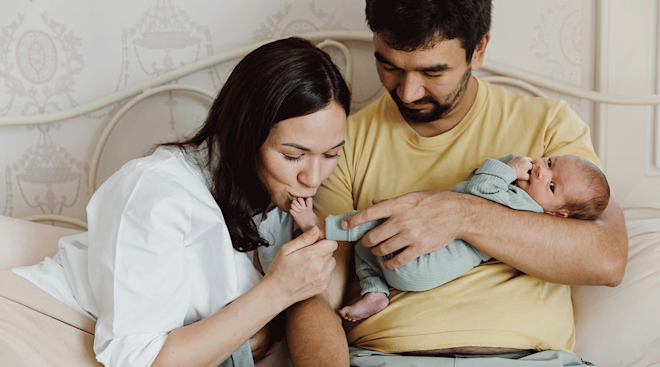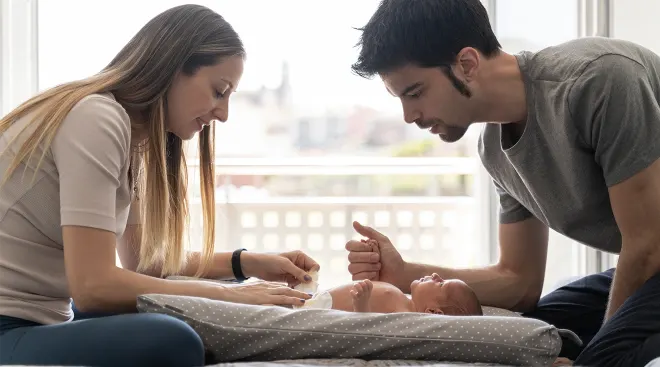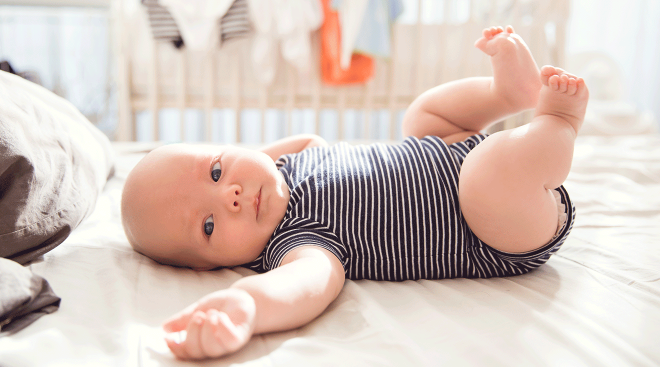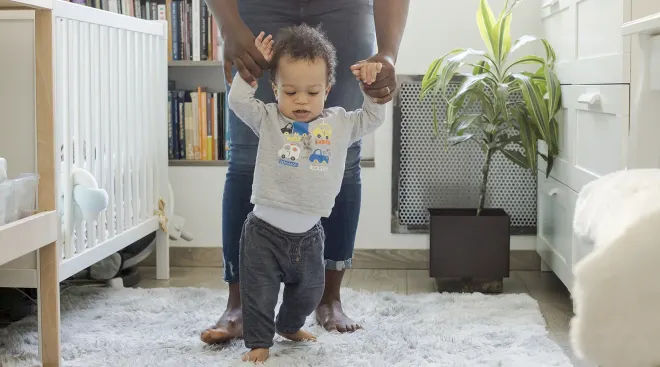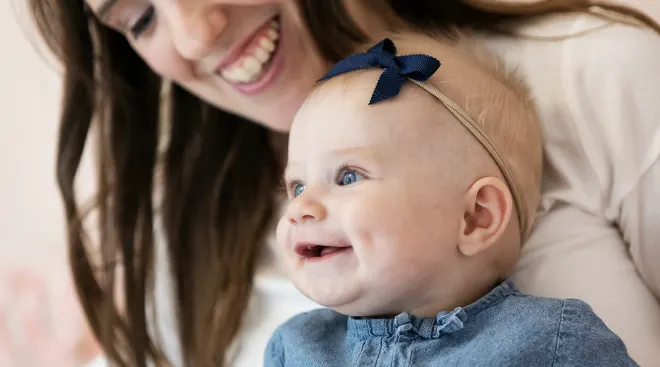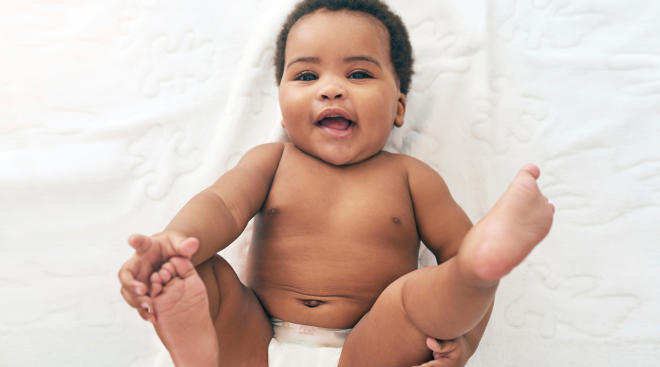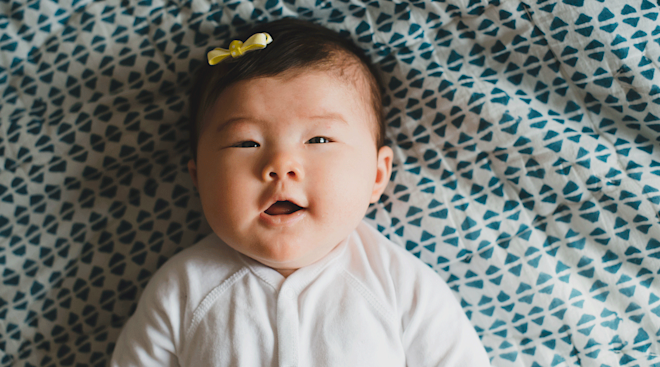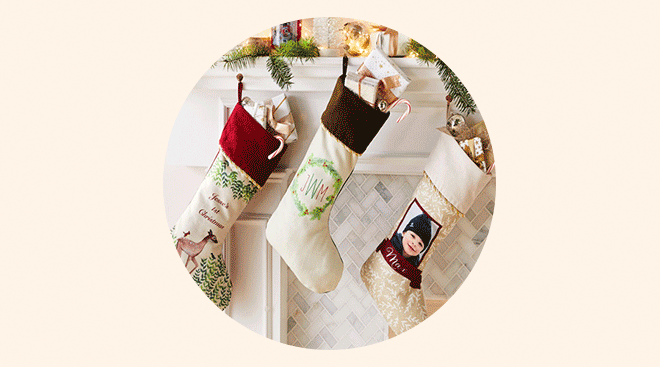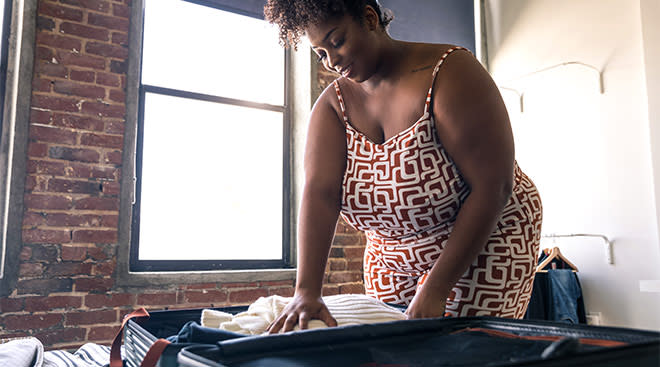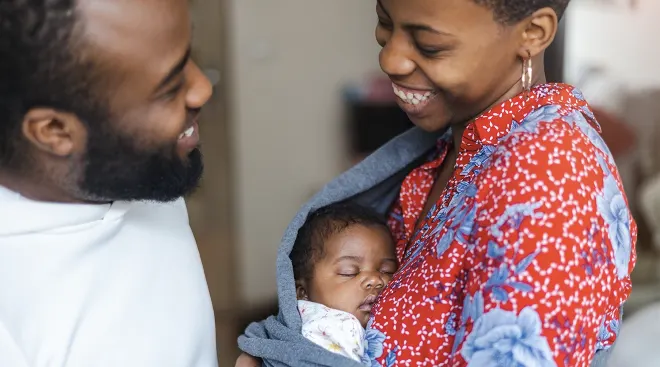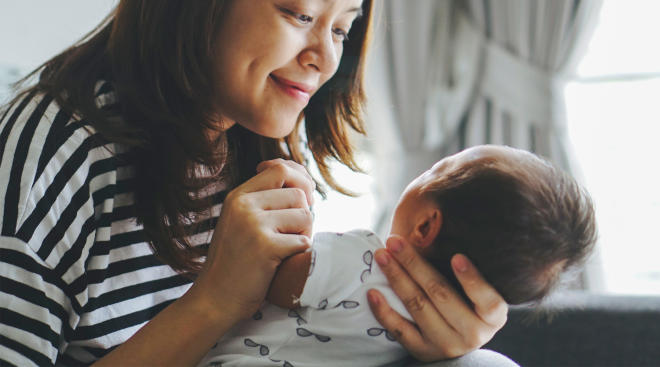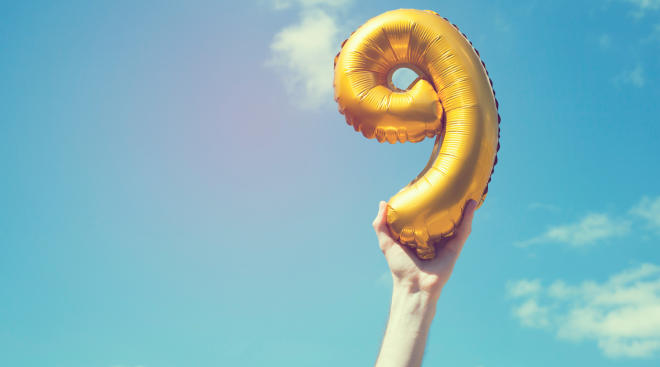Your Guide to Baby Swimming Lessons
Watching baby grin and giggle as they splash around in the tub is one of the cutest sights around, and may make you wonder—how soon can you sign up for baby swimming lessons? Maybe you have a pool, are planning a vacation or have just noticed that the bath is baby’s happy place. Infant swim lessons are designed to get kids comfortable in the water and teach them basic water safety. Here, experts weigh in on baby swimming—when and why to start lessons, what to consider when choosing a class and what you can do to make it smooth sailing from baby’s very first dip in the pool.
The most important reason to consider baby swimming lessons is safety. According to the CDC, there are some 3,536 drowning-related deaths annually, about one in five of which are children 14 and younger. So, while a one-year-old may not be able to swim laps, they can learn the skills they need to get to safety in the event that they fall in a pool, for example.
Rita Goldberg, CEO of British Swim School, says that too often parents take the “it couldn’t happen to me” mentality when it comes to drowning. “Parents say, ‘this tragedy could never happen to me because I’m very, very diligent,’ but sadly the people who have lost children are diligent.” Goldberg sees baby swimming lessons as a safety imperative. “It should not be a choice. It should be an absolute necessity. I put it on the same lines as wearing a seatbelt,” she says.
The other benefit of baby swimming lessons is simply getting your child comfortable in the water so they see it as a fun and welcoming environment, which can make them more amenable to more complex learning down the road.
Goldberg says starting infant swim lessons when baby is around 6 months old is optimal. She’s found that around 8 months of age babies begin to develop a concept of fear, so if they’re already familiar with being in the water by then, all the better. If you’ve missed that mark, though, don’t fret. “We teach teenagers and adults, so no time is too late,” she says.
At 6 months babies probably won’t learn to swim, per se, but they will gain preliminary skills and comfort with the water to set them up for success later on. “Infants who participate in parent and child aquatics gain foundational knowledge and motor skills that can help them succeed in future swimming lessons, and can help them stay safer in and around the water,” explains Nichole Steffens, aquatic product manager for the American Red Cross. “Just like many infants learn to crawl before they learn to walk, in the pool, infants learn to kick and paddle before learning how to swim.”
With consistent lessons, even a very young child can learn to grab onto the edge of a pool or roll onto their back to float. Even if it buys them a few minutes, that can be the difference between drowning and an adult coming to the rescue.
When looking for baby swimming lessons near you, there are a few things to keep in mind. “The aquatic facility plays an important role in creating an environment that promotes learning,” says Steffens. “The facility should be clean, safe and well maintained.” She suggests parents look for clear water that’s free of strong odors, a dedicated lifeguard and evidence of safety rules like no running signs and requiring non-potty trained children to wear swim diapers.
Local community centers with a pool are a good place to start, but a facility that specializes in swim lessons for children and babies might be best equipped for infant instruction. Warm water—a temperature in the high 80s is ideal—is another thing to look for, especially for baby swimming since they lose body heat more easily. In addition, lessons for infants and small children should be short—no more than 30 minutes.
Goldberg also recommends looking for a swim school that teaches survival skills but in a way that makes swimming fun for children. “Look for one that has a great teaching program where the child would learn how to survive in an accident but also have fun,” she says.
Baby swimming lessons vary from program to program, but there are a few types of swim classes you’re likely to come across.
Infant Self-Rescue courses are taught without the parent in the water and emphasize skills that would allow a baby to survive on their own. Babies as young as 6 months work one-on-one with a certified instructor to learn to float to the surface when submerged under water and flip to their back where they can wait to be rescued should they fall into a pool.
If that sounds more stress-inducing than helpful, a happy middle ground—and more common option—are parent-and-me classes where a caretaker is in the water with the child. These have the benefit of teaching baby swimming skills while also giving the parents pointers on how to teach water safety to their kids. At the American Red Cross, for example, parents are present in the water with their children until they’re 3, even as they learn to practice more skills independently.
Every baby will react differently to infant swim lessons, so expect a range of emotions—from giddy to downright miserable. The key is to stick with it and make the lessons as fun as possible. Here are a few tips to keep baby happy and safe in the water:
- Start in the bath. “The easiest way to eventually gain a safe and happy swimmer is the bathtub experience,” says Goldberg. She says we tend to be extra careful with babies in the tub, wiping water from their face, keeping their ears from getting wet and avoiding splashing, but “those are the opposite of what will help them in the future.” She suggests getting baby used to having water poured on their head, laying them on their back (assisted, of course), and even splashing and getting a little noisy in the tub so they becomes accustomed to this kind of activity.
- Don’t eat right before. The old adage of waiting an hour before getting in the pool is true, says Goldberg. To avoid having your kid get sick in the pool, don’t feed them right before swim class.
- Make sure your child is calm before class. Take steps to ensure baby is happy before entering the water, Steffens says. If baby is crying hysterically or is cranky because they’re overtired, chances are even a fun swim class won’t turn that around—and likely will only make things worse.
- Arrive early. When possible, try to arrive 15 minutes before class is scheduled to start, Goldberg advises. She says giving your child the time to get acclimated, as opposed to rushing into the pool, makes an enormous difference.
- Maintain a safety-first mindset. Swimming should be fun, of course, but Steffens maintains that when it comes to being around water, safety is always the primary goal. “Always make sure your child is within arm’s reach of a parent or caregiver when around the water,” she warns. “This includes on the pool deck.”
- Know when to take a break. It can be tricky to know when to gently nudge your child to help them get past some discomfort and when to back off, but Steffens says it’s important not to push things too hard when it comes to infant swim lessons. “Never force a child to perform a skill, and know when enough is enough,” she says. “If the child becomes upset or uncomfortable, take a break, get out and warm up. Don’t force an infant to stay for the entire class if they’re not comfortable.”
- Stay healthy. While Goldstein emphasizes that the likelihood of getting sick from a pool is slim, parents have to do their part to keep it clean. “To help prevent recreational water illnesses, pediatricians recommend that children with fevers, rashes, diarrhea or any symptoms of an infection not participate in an aquatics program,” Steffens says. “If your child doesn’t feel well, or has/is recovering from diarrhea, don’t bring your child to class.”
Please note: The Bump and the materials and information it contains are not intended to, and do not constitute, medical or other health advice or diagnosis and should not be used as such. You should always consult with a qualified physician or health professional about your specific circumstances.
Plus, more from The Bump:
Navigate forward to interact with the calendar and select a date. Press the question mark key to get the keyboard shortcuts for changing dates.
































